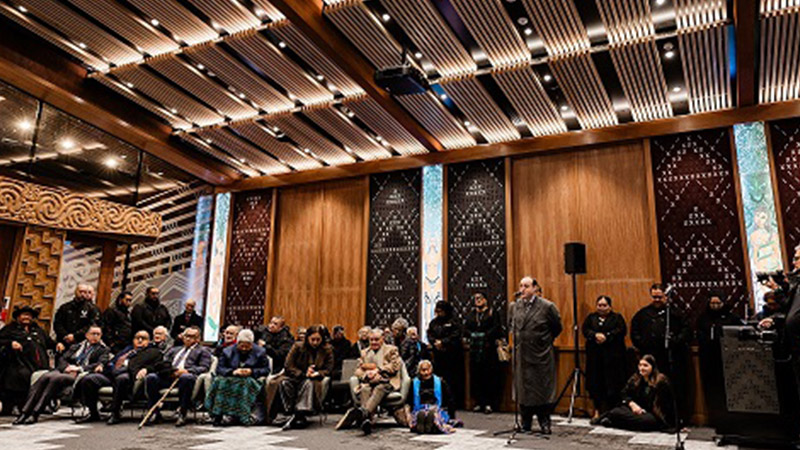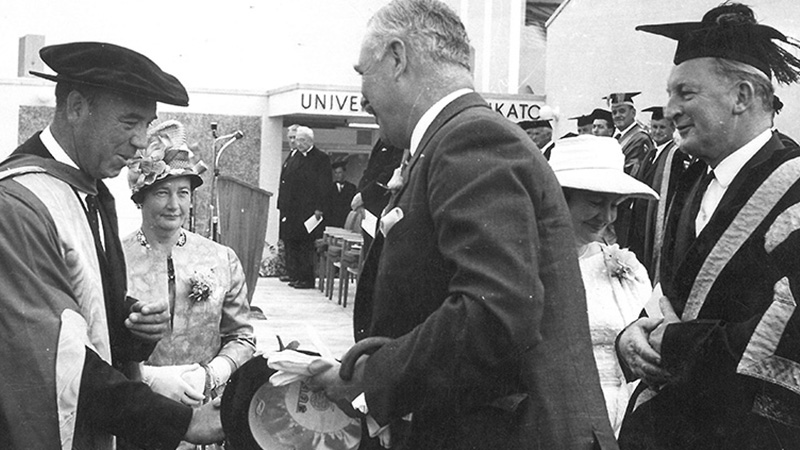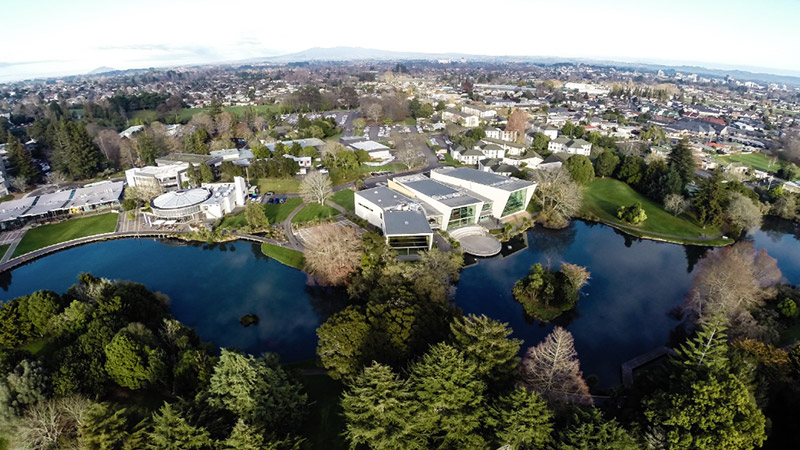The Last Decade
The past decade has seen the University of Waikato embrace change as a catalyst for our growth, as we have continued to evolve to meet the needs of our students and communities through one of the most challenging periods in recent times.

A Decade of Evolution
Since the landmark 50th anniversary celebrations, the University has embarked on a journey of structural and curriculum changes and campus development driven by our commitment to excellence in education and research. More recently we have done this through the backdrop of Covid-19 and the rising cost of living crisis but always with the needs of our students and community as the focus.
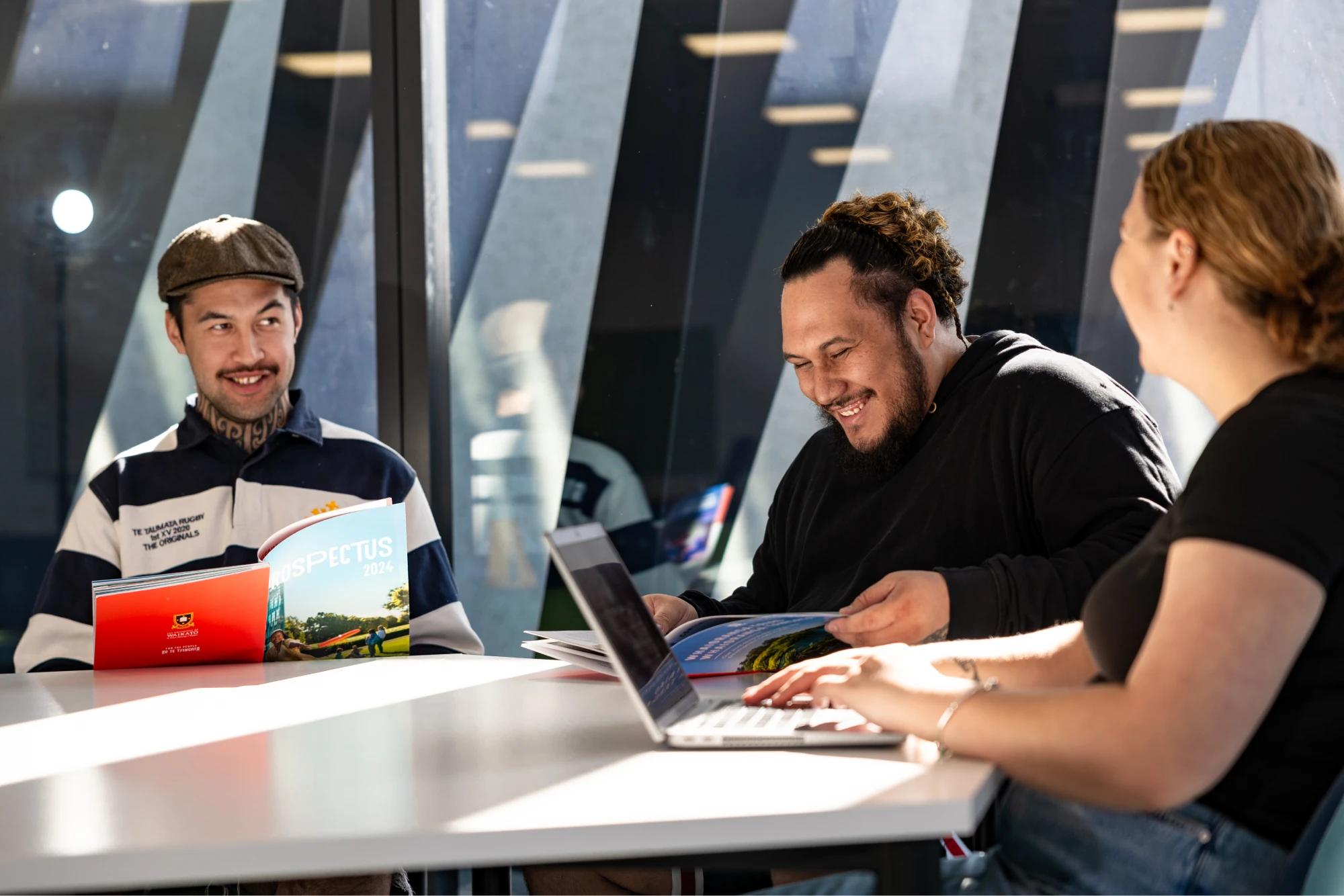
Responding to Changing Student Needs
Responding to the changing needs of our students and community the University adopted a new Academic Plan in 2017 to act as a guide for creating challenging programmes that reflect the interests of our students and the needs of employers and communities.
It saw us reorganise our schools, faculties, and research units into four main academic divisions: Arts, Law, Psychology and Social Sciences (ALPSS); Education; Health, Engineering, Computing, and Science (STEM); and Management.
In 2017 the University also celebrated the launch of Te Huataki Waiora, the School of Health, Sport, and Human Performance. The school brings together expertise from across the University into research and teaching focused on sport science and high-performance sport to health communication, and education.
Alongside redesigning many of our papers at 100 and 200 levels across programmes, we also launched new qualifications, including our world first Bachelor of Climate Change and our Bachelor of Nursing programme, both launched in 2021. Building on our curriculum development we have since launched our new Academic Plan 2022-2026, to guide our aspirations for teaching and learning over the next five years.
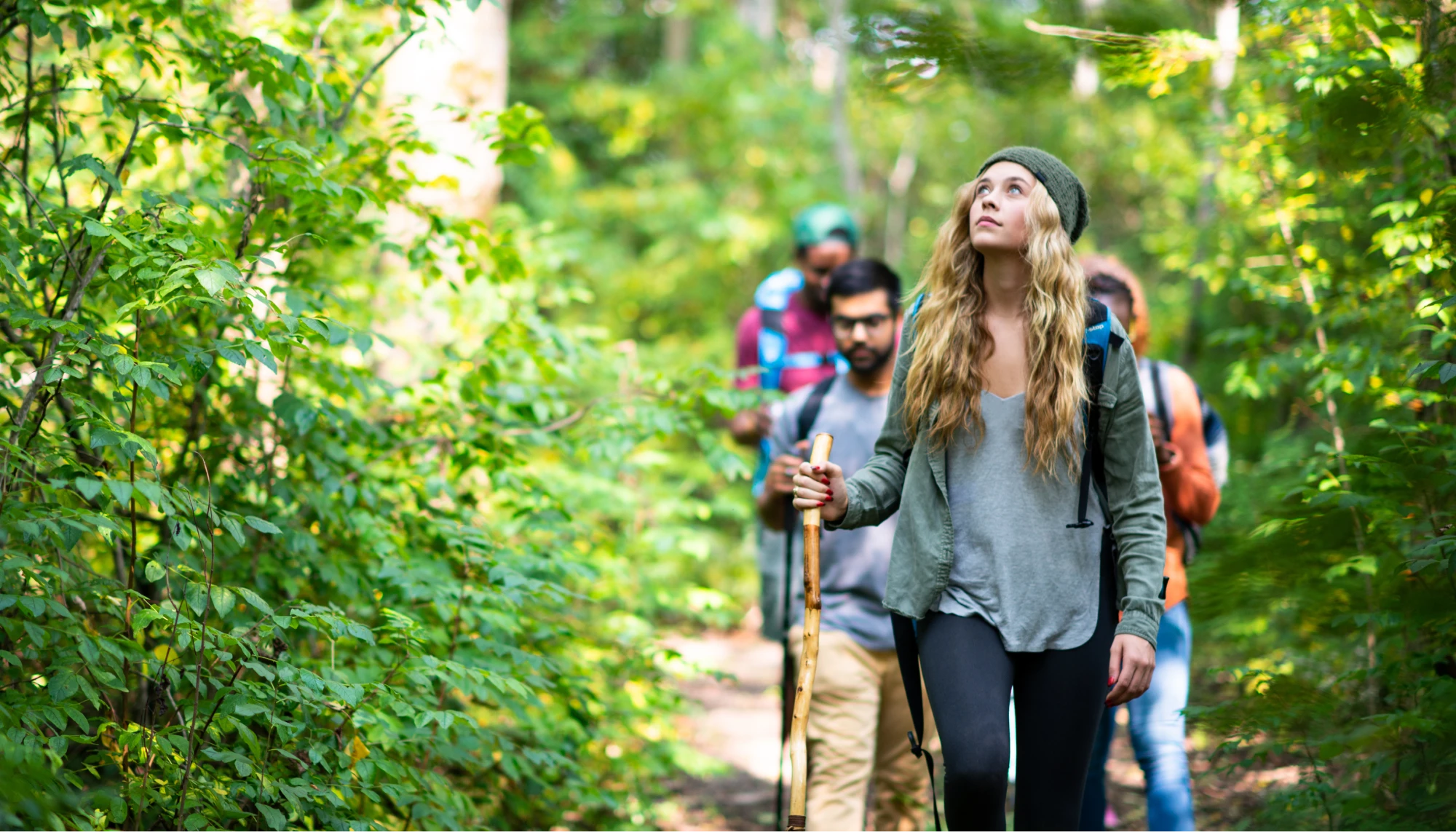
New Qualifications
With the needs of our community and our students at the forefront of our decisions, our Bachelor of Climate Change is the first of its kind in the world.
With the needs of our community and our students at the forefront of our decisions, our Bachelor of Climate Change is the first of its kind in the world, combining scientific knowledge with understanding of economic, social and political systems and Māori and Pacific responses to climate change. The multidisciplinary nature of the qualification is developing graduates ready to tackle the world’s biggest challenge.
Meanwhile our Bachelor of Nursing, launched alongside partners Te Whatu Ora Waikato and clinical partners from community care, is already delivering on its goal of growing a more diverse health workforce. Our first cohort, 30% of whom identify as Māori or Pacific, will graduate this year.
The success of our nursing programme has also served as a launch pad for new qualifications underway including a Master of Pharmacy Practice and our goal of establishing New Zealand’s first graduate entry medical school, which we are working with the Ministry of Health to create a business case for this year.
Research and Innovation
The latest QS University rankings placed us 250th in the world and the number one University in New Zealand for research, measured by citations per faculty member.
While developing our curriculum, the University has also remained at the forefront of research and innovation, securing significant research contracts and achieving recognition both nationally and internationally for the impact our researchers are making in the world.
Part of supporting our researchers has been developing facilities to support their work. Our new Law and Management building was opened in 2016 housing Te Piringa - Faculty of Law and our Te Raupapa - Waikato Management School. The Management School also achieved the ranking of number one in New Zealand for Business and Economics in the 2022 Times Higher Education rankings.
In 2019 we opened our Tauranga campus, cementing our longstanding relationship with the Bay of Plenty, and we have continued to build on this work with the development of our aquaculture facility at Sulphur Point in 2020 and the launch of our Blue Green Lab in 2022, the region’s first university Research and Development lab focused wholly on engineering and technology for the primary industries sector.
In 2021 we launched Te Ipu o te Mahara, our Artificial Intelligence (AI) Institute, focused on translating New Zealand’s world-leading expertise in AI into commercial businesses and applications for the benefit of New Zealand industries and communities.
And in 2023 Te Kura Mata-Ao - School of Engineering at our Hamilton campus opened our Mata-Tina Lab. The $8 million building extension provides more project-based and ‘hands-on’ learning facilities for our engineering students, including a 24-hour prototyping lab.
Bringing it all together was the opening of The Pā in 2023. The landmark new building at the heart of our Hamilton campus acts as the new centre for students, staff and our wider community, delivering a truly Waikato experience.
Looking Ahead
While we reflect on the past 10 years as part of our 60th celebration, we also know our work is far from over.
Our commitment to excellence and innovation will continue to see us shape the future of education and research in Waikato, the Bay of Plenty, and Aotearoa, just as it has done for the past decade.

